Child Poverty Rates and Low Literacy Scores Rouse Meriwether County Family Connection to Shift Strategy
Print This Postby Krystin Dean
Sometimes one conversation can create a seismic shift in strategy. That’s what happened when Rhonda Fuller attended a peer-to-peer presentation in Troup County after stepping into the role of executive director for Meriwether County Family Connection in 2017. She learned about Troup’s efforts with Get Georgia Reading—Campaign for Grade-Level Reading.
“I asked how they garnered such strong support, and they said it truly takes on a life of its own,” Fuller recalled. “And that’s so true. When we brought this to the table, it was like a switch just flipped.”
When only 16% of Meriwether’s third grade students were reading proficiently and over 33% of children were living in poverty in 2017, it struck a chord with the Collaborative Board—as well as learning that prison population projections are based on third-grade reading level.
“Our board saw how it would improve family well-being in the county as a whole,” said Fuller. “We can improve reading scores, but the ultimate goal is improving a family’s life and building a stronger community. And raising healthy, literate children who grow up ready to succeed and help build our county’s workforce starts in the womb.”
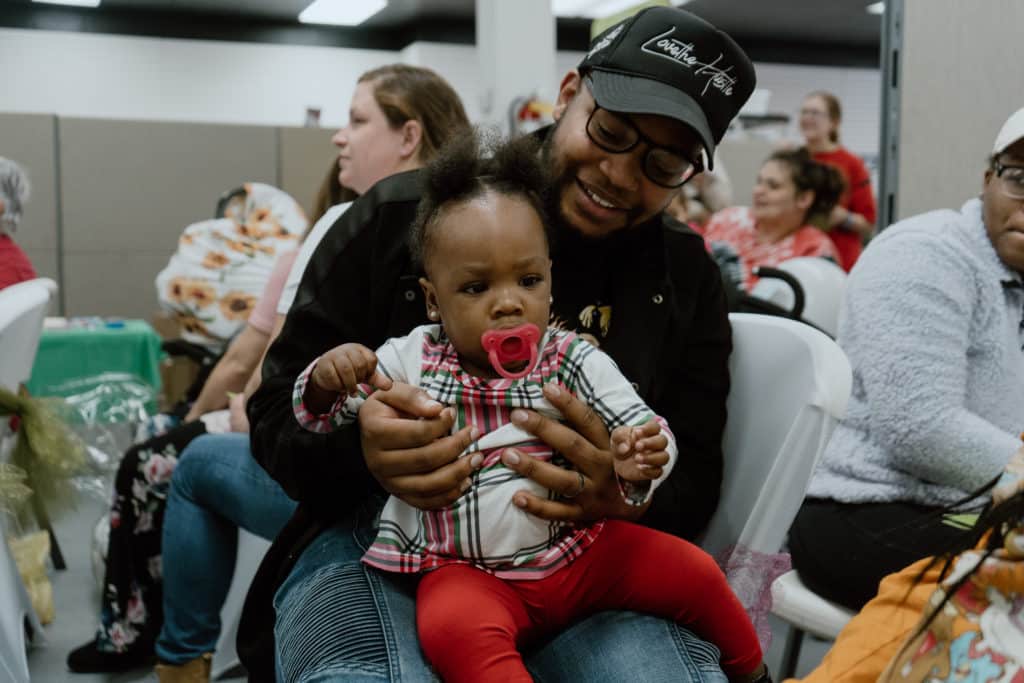
The Collaborative had been part of the Georgia Family Connection’s Promoting Women’s Health and Healthy Births Cohort for several years, aiming to work with partners to build activities to improve women’s health and birth outcomes. Fuller recognized the overlap between the population in need of Promoting Women’s Health and Healthy Births and literacy supports, but Meriwether County Chamber of Commerce president and Get Meriwether Reading co-chair Carolyn McKinley initially balked at blending Promoting Women’s Health and Healthy Births and literacy efforts.
“My fear was focusing on a narrow sector of the population, not putting enough attention into the rest of the 70% of kids who are behind in grade-level reading,” said McKinley. That apprehension dissipated when Georgia Family Connection Partnership data specialists led the team through a logic model for both issues. “You could just see where everything aligned,” she said. “That really brought it home.”
There were 31 LBW births in Meriwether in 2017, with an additional 25 LBW births in 2018. This often leads to a variety of developmental challenges and long-term disabilities, such as lower educational achievement, behavioral problems, and cognitive developmental delays.
“One board member said, ‘That’s an entire classroom,’” Fuller recalled. “We said, just think—in five years, they’re going to enter school and you need enough teachers to work with those students as they progress through the school system.”
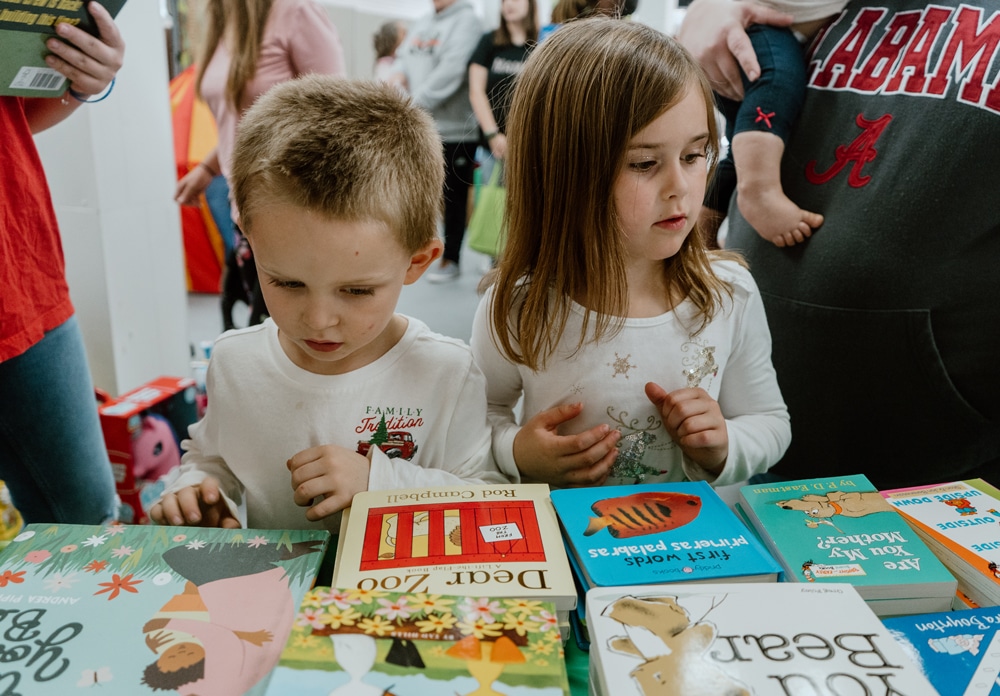
New partners joined the table as the Collaborative added early literacy to their FY20 annual plan and the Get Meriwether Reading strategy team focused on creating targeted goals and programming.
“Rhonda creates a sense of ownership within our team,” said McKinley. “it’s not just the content of the framework—it’s also the way she makes people feel and the unity she cultivates in that room and with those partners. She’s been able to tap into their hearts.”
The Get Georgia Reading Campaign’s four-pillar framework—focused on access, language nutrition, positive learning climate, and teacher preparation and effectiveness—immediately resonated with Angie Shirah, the Collaborative’s Promoting Women’s Health and Healthy Births consultant and early literacy coordinator.
“We can’t look at the four pillars separately,” said Shirah. “Whenever we’re considering the next best step, we’re connecting those dots so that we’re hitting every aspect of the family life and school life for the ultimate outcome for each child.”
Elevating Expectations
“Have you had a low birthweight baby?” This question the Meriwether County Health Department, Women, Infants and Children (WIC) Nutrition Program, HeadStart, and other partners ask is always flagged on referrals to Meriwether County Family Connection.
“While there are tailored resources for these families, we’re educating all our moms about low birthweight risks with all our engagement opportunities,” said Shirah. “We always think, ‘This may be the only time this person gets to hear me, so we’re going to cover it all.’”
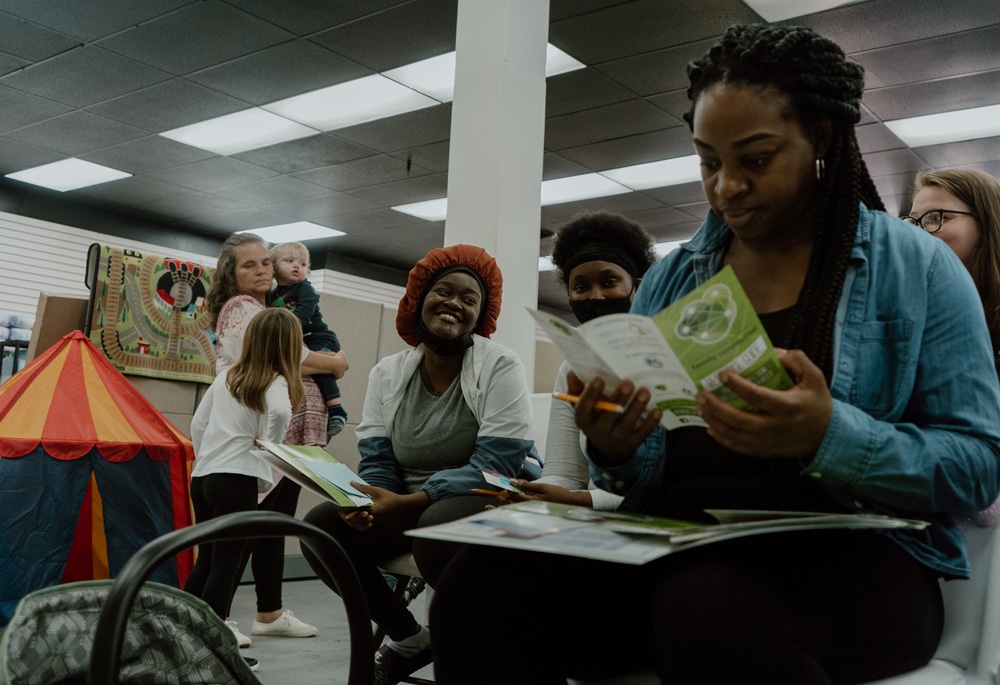
The Collaborative’s programs include:
- the Reading Cubs program, which allows all children up to age 4 to receive a free LeapFrog Learning books, flashcards, and activities to prepare them for pre-K;
- the Reading Rangers program, which pairs volunteers with at-risk students in pre-K through second grade to improve reading;
- Mommy and Me events that provide families with resources and parent education along with free books, diapers, and other baby items;
- the Summer Read & Feed program with the Meriwether County School System (MCSS), which provides books and materials to kids at feeding sites across the county;
- WIC Matters Fresh from the Start;
- summer camps;
- arts and STEM programming, which promotes literacy; and
- school events like the Back to School Bash that provide supplies, books, and resources.
Mother of four Shamekia Harris attended Get Meriwether Reading’s first Community Resource Fair in 2019 and has attended every event since from the Head Start Roundup to free pop-up book fairs. Her 3-year-old was the county’s first-ever Reading Cub.
“These events have helped my family to make sure my baby girl had diapers and wipes—and even clothes, toys, and books for all my kids,” said Harris. “If I ever need anything, Mrs. Angie is always helping and giving me resources. I appreciate them for always allowing us to come and have a great time and get support too.”
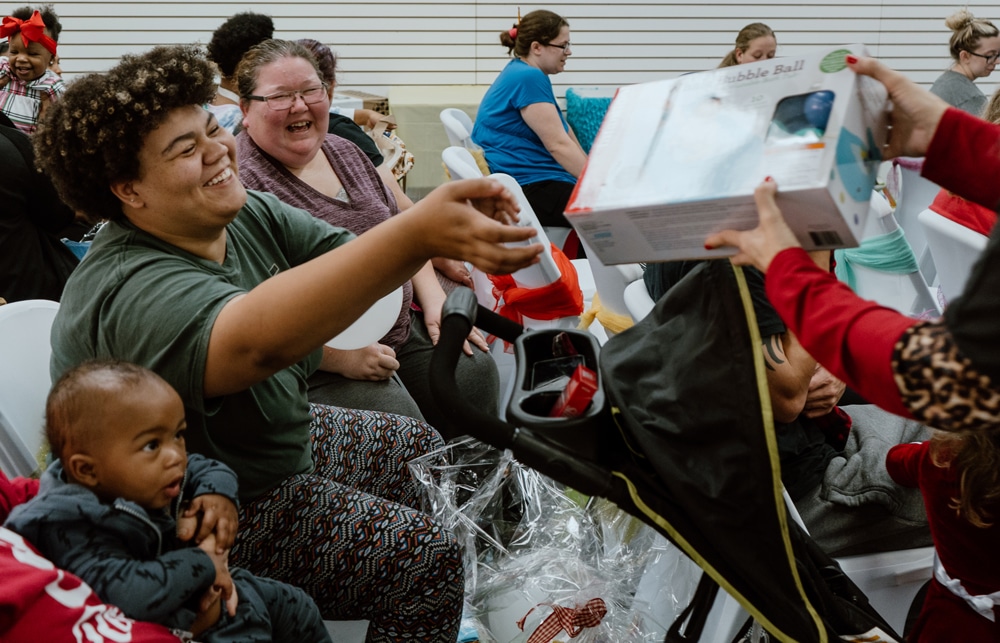
Several grants have allowed Get Meriwether Reading to advance these efforts, thanks in large part to Robert Griffin, who became MCSS superintendent in 2018.
“He has institutionalized a culture of grant writing among all of us—teachers, school leaders, the Chamber, and Family Connection,” said McKinley. “He’s been the gatekeeper for a whole shift in philosophy throughout the community and has elevated the level of expectation for all of us.”
While Meriwether’s leaders are empowered to apply for grants, Griffin doesn’t hesitate to invest in external grant writing expertise to tackle more in-depth applications. “Our return on investment is probably 1,000%,” said Griffin.
The Collaborative, Chamber, and MCSS applied for 37 grants between 2019 and 2021—and were awarded funding for 30 of them, including a $74,800 Innovation Grant from the Governor’s Office of Student Achievement and $731, 000 per year for four years in Learning, Living, and Leading in Georgia (L4GA) funding.
“It’s all about communicating and transparently working together for the betterment of our children,” said Griffin. This collaboration saw the College and Career Ready Performance Index increase 4.4 points during the 2018-19 school year. Then the pandemic obstructed this progress.
Staying—and Reshaping—the Course Through COVID-19
“We were about to have a banner year, and then COVID knocked us back,” said Griffin. “While our STAR scores significantly improved across the board last year, even during a pandemic, we were dealing with learning loss. But we’re working tirelessly, and I look forward to getting our 2021-22 results that will reestablish a baseline.
In the meantime, the Collaborative is relying heavily on local data to assess needs and evaluate progress. “We know there’s going to be a huge gap in the KIDS COUNT data where things weren’t reported,” said Fuller. “We’re reaching out to DFCS to get their neglect and abuse numbers, checking on WIC numbers with the health department, calling the schools to get their STAR scores—finding other indicators to track because we know certain assessments weren’t completed the year before.”
The Collaborative has adapted to meet families’ needs:
- partnering with elementary summer school programs, the 21st Century after-school summer program, and additional summer camps to reach more students through Summer Read and Feed;
- temporarily transitioning the Reading Rangers program to virtual visits focused on sight words and phonics for early readers who had experienced learning loss; and
- working with MCSS to improve transportation options to HeadStart and early learning centers.
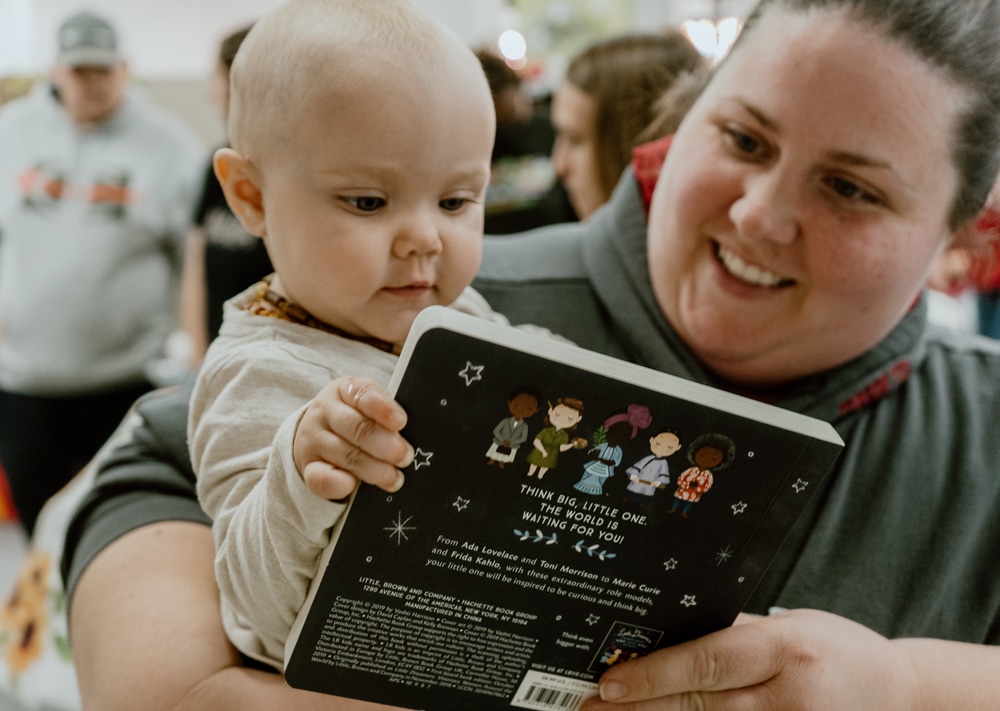
The Parents as Teachers program kicked off in Meriwether in December 2021, matching parents and caregivers with trained parent educators who make regular personal home visits during a child’s earliest years in life, from prenatal through kindergarten.
“This was a no-brainer because it fits hand in hand with our strategy,” said Fuller. “All the work is centered on family well-being and the child succeeding.”
Get Meriwether Reading’s team is committed to ensuring that all kids are primed for school. “If we can just get children ready to go to pre-K or kindergarten, the teachers can take over from there,” said McKinley. “We’re going to reap the rewards of our labor,” added Griffin. “It just takes a little time.”
To learn more about Meriwether’s Promoting Women’s Health and Healthy Births Cohort and Get Meriwether Reading, contact Meriwether County Family Connection Executive Director Rhonda Fuller at meriwetherfamilyconnection@gmail.com.
Read and share Expanding Our Perspective, Unlocking Our Potential—Georgia Family Connection’s 30-year impact report.
Contact:
Krystin Dean
GaFCP Communications Specialist
706-897-4711
krystin@gafcp.org
Follow us on Twitter: @gafcpnews
Connect with us on Facebook.
